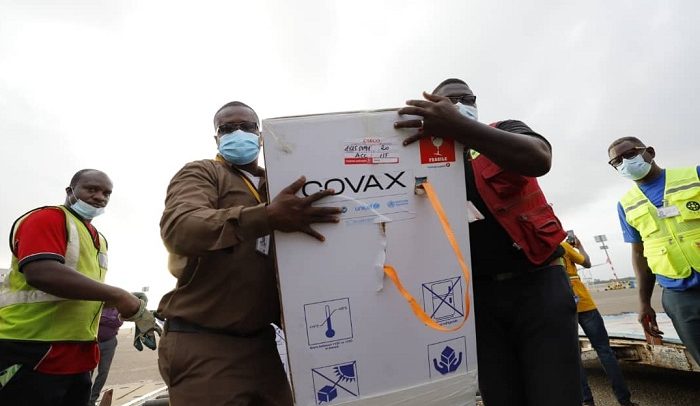The health authorities have taken delivery of the second batch of the AstraZeneca COVID-19 vaccines acquired through the COVAX Facility (CEPI, GAVI, WHO), with logistical support from UNICEF.
The arrival of 350,000 doses of the AstraZeneca vaccine doses developed by the Serum Institute of India (SII), forms part of the larger 1.7 million consignment of doses allotted earlier to the Democratic Republic of Congo (DRC).
Over 1.3 million doses of that allocation have subsequently been reallocated to five countries in Africa with Ghana being one of the selected recipients due to its rapid, efficient and coordinated response to the public health crisis, as well as its absorption capacity.
In a statement to announce the arrival of the vaccines, UNICEF Ghana said the Ministry of Health (MoH) and Ghana Health Service (GHS) have significantly strengthened cold chain equipment and facilities over the past years, with support from GAVI and UNICEF.
“This has enabled the successful and safe transfer of the vaccines between the two West African countries.
To assess the potency of the vaccine, UNICEF formed part of an independent committee which conducted a complete assessment of the vaccine and formally endorsed that they have been well maintained and are safe and effective for immediate use,” it said.
The initial vaccination campaign, which commenced on March 1, following the vaccination of President Akufo-Addo live on television, has enabled health workers, persons with underlying comorbidities, frontline personnel living in Greater Accra, Ashanti and parts of Central regions to receive their first dose of the COVID-19 vaccine.
This has provided a level of protection for members of the population most at risk of contracting the virus.
Thus, an additional 350,000 vaccines will contribute to the administration of the follow-up second doses, which is expected to start on Monday, May 19, for two weeks.
Priority population groups include health care workers and other frontline workers, persons above 60 years of age, and persons with underlying medical conditions.
As it was the case during the first phase, the Ghana Health Service and Ministry of Health will initially target 43 districts, including 25 in the Greater Accra region, 16 in Ashanti and two districts in the Central Region.
By Jamila Akweley Okertchiri


